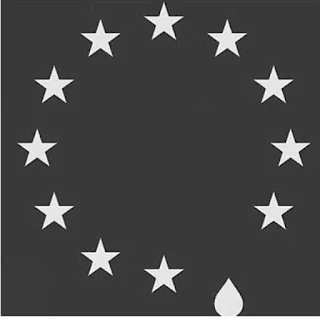" I want freedom, the right to self-expression, everybody's right to beautiful things," so said Red Emma, without adjectives, who sought a way of being free, who would rather roses on her table, than diamonds on her neck. Edgar Hoover once described her as the most dangerous woman in America. Who simply chose to cling on throughout her life to her deep ideals,a beautiful ideal for a better world. She told us " Ask for work, if they don't give you work, ask for bread . If they do not give you work or bread, then take bread."
Emma Goldman was born today on June 27, 1869, Kovno, Russian Empire. She became one of the most outspoken and well-known of American radicals,political organising lecturing and writing on anarchism, women’s rights and other political topics. Convinced that the political and economic organization of modern society was fundamentally unjust, she embraced anarchism for the vision it offered of liberty, harmony and true social justice. For decades, she struggled tirelessly against widespread inequality, repression and exploitation. She served prison terms for such activities as advising the unemployed to take bread if their pleas for food were not answered, for giving information in a lecture on birth control, and for opposing military conscription, this led to an eighteen-month imprisonment before the First World War In 1908 she was deprived of her U.S. citizenship. She emigrated to Russia and then to Europe, where she travelled and lectured in many countries.She came to Wales, Emma's itinerary of speaking dates during her stay in the UK shows that the most extensively toured area was the south Wales coalfield. During two weeks in 1925 she spoke to audiences from Swansea to the Rhondda, commenting in her letters that the coalfield was a "splendid field" to spread anarchist ideas. She subsequently joined the Spanish Revolution, backing the Spanish Anarchists, as they tried to restructure society, while battling fascist, Stalinist threats.
As an orator Emma Goldman was fiery and brilliant, drawing crowds of thousands to hear her speak. She is known for her extraordinary energy and appetite for life. Many of us associate her with the quote: "If I can’t dance, it’s not my revolution."which Emma Goldman herself saying herself she never literally spoke those famous words. In her autobiography Living My Life (1931) she describes how she was once admonished for dancing at a party in New York and was told “that it did not behoove an agitator to dance. Certainly not with such reckless abandon, anyway.” Goldman speaks furiously the occasion here;
“I became alive once more. At the dances I was one of the most untiring and gayest. One evening a cousin of Sasha, a young boy, took me aside. With a grave face, as if he were about to announce the death of a dear comrade, he whispered to me that it did not behoove an agitator to dance. Certainly not with such reckless abandon, anyway. It was undignified for one who was on the way to become a force in the anarchist movement. My frivolity would only hurt the Cause.I grew furious at the impudent interference of the boy. I told him to mind his own business. I was tired of having the Cause constantly thrown into my face. I did not believe that a Cause which stood for a beautiful ideal, for anarchism, for release and freedom from convention and prejudice, should demand the denial of life and joy. I insisted that our Cause could not expect me to become a nun and that the movement would not be turned into a cloister. If it meant that, I did not want it. "I want freedom, the right to self-expression, everybody's right to beautiful, radiant things." Anarchism meant that to me, and I would live it in spite of the whole world — prisons, persecution, everything. Yes, even in spite of the condemnation of my own closest comrades I would live my beautiful ideal” I did not believe that a Cause which stood for a beautiful ideal, for anarchism, for release and freedom from conventions and prejudice, should demand the denial of life and joy. I insisted that our Cause could not expect me to become a nun and that the movement should not be turned into a cloister. If it meant that, I did not want it.” This episode was later paraphrased and transformed into the famous quote.
Goldman’s biographer and feminist writer Alix Shulman explained that in 1973, he befriended printer who asked him for a quotation by Goldman for use on a t-shirt. Shulman sent him the passage from Goldman’s autobiography, but the printer rephrased the passage into “If I can’t dance, I don’t want to be part of your revolution”. As Shulman recounts, the citation subsequently found its way onto millions of buttons, posters, T-shirts, bumper stickers, books and articles: I still think it's lovely when I wake to know where the sentiment and quote that greets me in the bathroom actually derives from.
Today no rant from me I celebrate Emma Goldman's birthday who continues to inspire and be warmly remembered for the anarcho-feminist, anti-militarist and internationalistic contributions she made to the social revolutionary struggles in life. In troubling times, her words and deeds continue to inspire as we come together and believe in better days. Beyond the panic of our current predicaments and journeys their our those who will keep on fighting for a fairer society, that continue to champion her pursuit of universal justice towards a more humane, fair and fulfilling world. Her dream lives on.
Here is a rather nice song by Anne Feeney simply called Emma Goldman. Enjoy.














